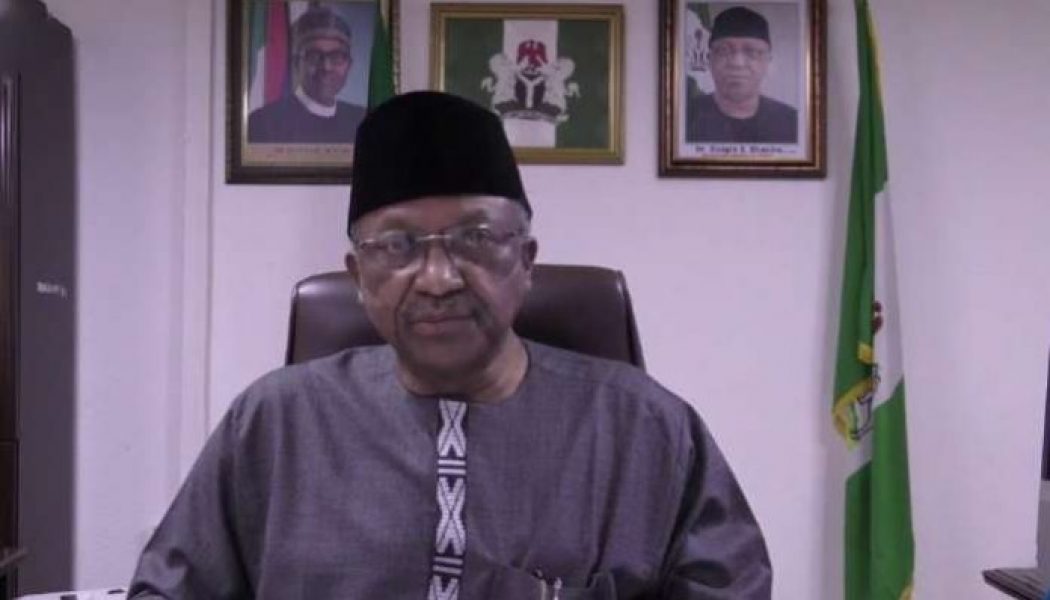
The federal government has said that it will require N1.89 trillion to successfully implement the new five-year strategic plan aimed at eradicating malaria in Nigeria.
It said that about N352 billion out of the amount is required for the year 2021 programme implementation.
In his address to mark this year’s World Malaria Day, the Minister of Health, Dr. Osagie Ehanire, said the target set out in the National Malaria Strategic Plan of 2021 to 2025 is to achieve less than 10 per cent parasite prevalence and reduction in mortality attributable to malaria to less than 50 deaths per 1,000 live births by 2025.
He said: “The implementation of the New Strategic Plan will cost N1.89 trillion. About 63.1% of the total amount will be used to support Chemoprevention, diagnosis and treatment, while 35.9% will be used for vector management. About N352 billion is required for the year 2021 programme implementation.”
Ehanire said that considering the prevailing economic circumstance, the government may not have the required amount, hence private sector support will be needed in order to improve programme performance and coordination.
He solicited the support from the private sector, corporate organisations and patriotic individuals.
According to Ehanire, the role of the private sector in the fight against malaria is being given priority through the establishment of a Public-Private and Philanthropic Partnership (PPPP) subcommittee and private sector desk.
He said: “We are also strengthening Domestic Resource Mobilisation (DRM) to ensure funds availability for malaria elimination. One key strategy we are working towards is the establishment of an End Malaria Council to drive this domestic resource mobilization.”
The minister said the forecast and quantification of malaria health products for 2021- 2025 for the 36 states and FCT have been reviewed based on available service data to ensure their availability in the next five years.
On the result of various interventions embarked upon by the government, Ehanire said the use of insecticide treated nets among under-five children has increased from 43.4% (2015) to 52% (2018), while pregnant women increased use from 49% (2015) to 58% (2018).
He further stated that fever testing of under-five children increased from 5% in 2010 to 11% in 2013, 13% in 2015 and 14% in 2018.
“These measures resulted in reduction of malaria prevalence from 42% in 2010 to 27% 2015 and 23% in 2018. We expect that when results of the 2021 Malaria Indicator Survey to be conducted later this year are out, a further downward trend will be seen.
“We shall continue to work hard to ensure less than 10% parasite prevalence and reduce malaria mortality to less than 50 deaths per 1,000 live births by 2025, the target set out by the National Malaria Strategic Plan of 2021 to 2025,” he said.
The minister further said that over 12 million children aged 3-59 months were reached under the Seasonal Malaria Chemoprevention (SMC) intervention in nine eligible states in the Sahelian region, which provided the opportunity to pilot a co-implementation of SMC with Vitamin A supplementation.
In addition, Ehanire said that in order to improve the accuracy of diagnosis of malaria, 556 laboratory workers have been trained in malaria diagnosis.
As part of efforts to achieve universal health coverage and household ownership of Insecticide Treated Nets (ITNs) in Nigeria, Ehanire said that 17,267,410 nets were distributed in six states.
He disclosed that Nigeria is preparing for the 2021 National Malaria Indicator Survey to provide data on key malaria indicators.
The minister said that an analysis of data on malaria testing rates showed increases in malaria testing rates between 2019 and 2020.
The survey shows that malaria testing rates in Kaduna rose from 96% in 2019 to 98% in 2020; Kwara from 94% in 2019 to 97% in 2020; Lagos from 74% in 2019 to 76% in 2020; Osun from 96% in 2019 to 98% in 2020; Taraba from 90% in 2019 to 93% in 2020.
In its message, the World Health Organization (WHO) said Nigeria has recorded a drop in malaria prevalence from 42% in 2010 to 23% in 2018.
The WHO Regional Director for Africa, Dr Matshidiso Moeti, said that in 2019, Africa accounted for 94% of both the 229 million malaria cases and 409,000 malaria deaths reported globally.
She explained that between 2000 and 2019, malaria incidence declined by 29% and deaths by 60%, while more than 1.2 billion cases and 7.1 million deaths were averted in the region.
Moeti said that urgent action is needed to stop the scourge of the disease get on track towards the global malaria goals of a 90% reduction in cases and deaths by 2030.
“This includes investment to expand access to malaria interventions for groups that have been left behind, such as children and pregnant women. Smart deployment is also important to protect the effectiveness of malaria tools, along with innovations to proactively address anticipated challenges,” she said.
The WHO’s Country Representative, Walter Kazadi Mulombo, who read a message at the occasion, however, said that malaria has remained a leading cause of morbidity and mortality in Nigeria.
He said all Nigerians are at risk of malaria attack which accounts for more than 60% of hospital visits, 20% of under 5 mortality and 11% of maternal mortality.
“What is even more worrisome is that despite funding from government and partners, 44% of household out of pocket expenditure is on malaria. It is estimated that malaria causes a significant loss in economic growth and puts a strain on household finances,” he said.
Molumbo said that the World Malaria Report of 2020 estimated that 215 million malaria cases and 384,000 malaria deaths occurred in 2019 within the WHO African region accounting for 94% of cases and deaths globally.
According to WHO, Nigeria has continued to bear the disproportionate brunt of the malaria toll accounting for 27% and 23% of global cases and deaths respectively.
WHO said it has developed the High Burden to High Impact (HBHI) approach aimed at enabling countries to rethink the strategies for malaria control and elimination.
Molumbo added that the process has provided the right impetus for the development of the current malaria strategic plan, which provides clear direction towards using stratified and evidence-based information to drive impact, through a combination of tailored interventions that work in the context of sustainable and resilient health system.
Continuing, the WHO Country Representative said that collective action across sectors is crucial to address the challenges and accelerate progress towards ending the malaria scourge in Nigeria.










